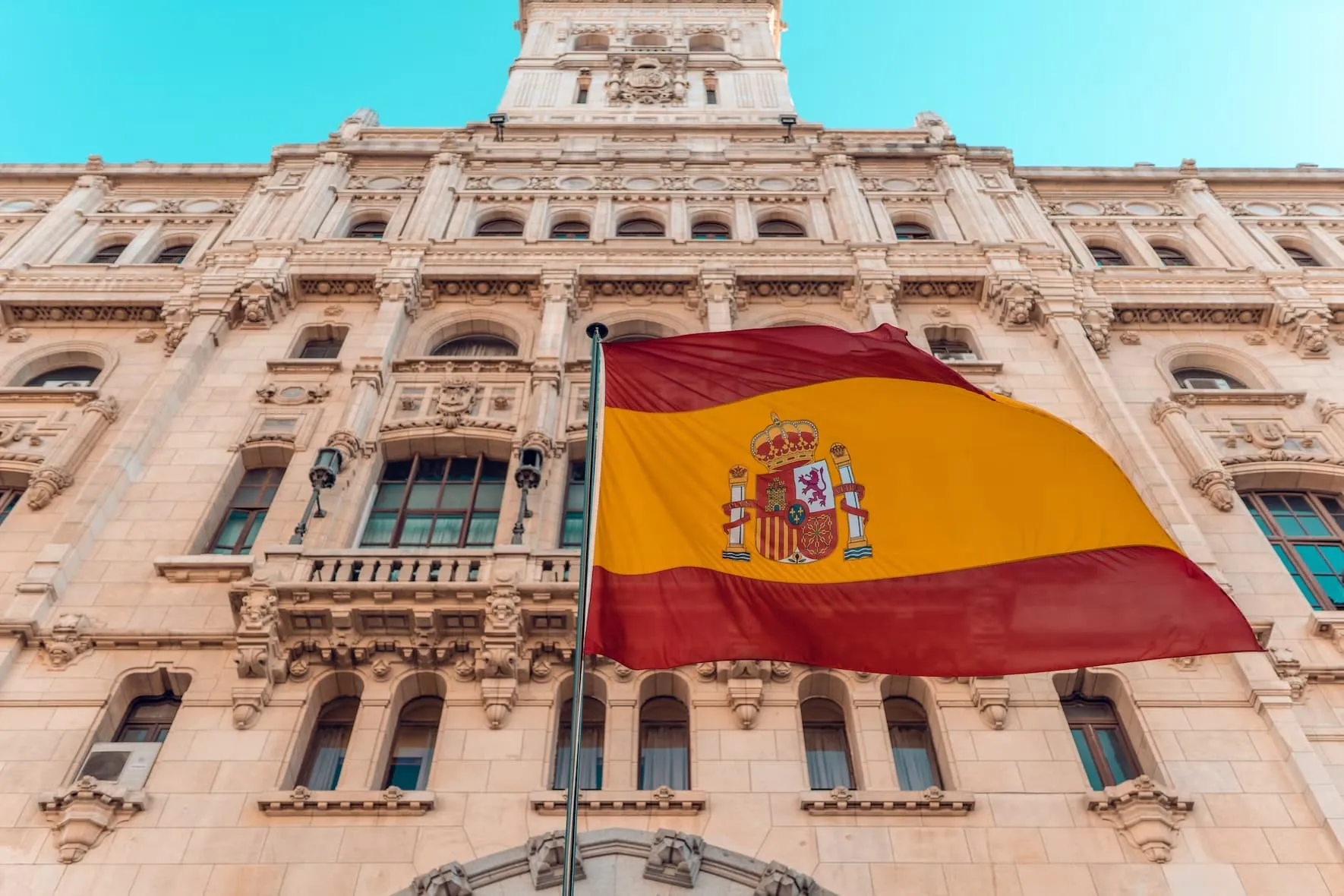Spanish Residency
Spain residency is available to both EU citizens and Non-EU citizens. Read through this piece if you want to know more about Spain residency.
Immigration Advice Service can also help with information and processes to aid in an easy application for your Spanish residency. You can contact our experts at +44 (0)333 414 9244 or visit our website.
Read our 1001 reviews
Request a call back from our immigration experts
Spain Residence Permit
Spain is a popular destination for those seeking to live and work in a new country. Residency in Spain can be divided into two categories which are:
Permanent residency cannot be applied for directly. You must have applied for a temporary residence permit before switching to permanent residency.
Spain Temporary Residency
Spain temporary residence option is for individuals who want to stay in the country for a short period. The option is also available for applicants who want to stay for a long period but are yet to meet the requirement. This residence permit is typically granted for a period of one year. Applicants can then renew after the expiration of the basic 1 year. The Spanish temporary residency is renewable up to a maximum length of 5 years.
Spanish temporary residency is available for applicants seeking to immigrate to Spain for different reasons. Some of the categories of people who apply for temporary residency are as follows:
- Individuals who have been offered a job in Spain but do not yet meet the requirements for long-term residency.
- Students who are enrolled in a Spanish educational program and have been offered admission into any Spanish university or college.
- Individuals who are married to, or are the children or parents of, a Spanish citizen. This is known as family reunification.
- Business persons who are self-employed in Spain and can demonstrate that their business is economically viable.
- Investors who make a significant investment in Spain, such as purchasing property or starting a business, may be eligible for temporary residence.
You will need to provide some documents to apply for temporary residence in Spain. It includes a valid passport, proof of sufficient financial means to support yourself in Spain, and any other documentation required for your specific situation, e.g. work contract, proof of enrollment in a Spanish educational program, etc. It is essential to carefully review the requirements and gather all necessary documentation before beginning the application process.
Spain Permanent Residency (Tarjeta Comunitaria Permanente)
Tarjeta Comunitaria Permanente is the Spanish word for Permanent Residency card. Spanish permanent or long-term residency is the opposite of temporary residency. Once you obtain this type of residency, you will be permitted to live in Spain indefinitely. You can only apply for this residency when you have lived in Spain continuously for 5 years. This residency is obtainable after you have immigrated to Spain under any of the available visa routes.
A Spanish permanent residence permit is available for all kinds of immigrants, provided they can meet the requirements. Regardless of your reasons for staying in Spain, once you meet the eligibility criteria, you can apply for permanent residency in Spain. There are different advantages associated with long-term residency. One of them is that you can bring your spouse, children, and parents to Spain using this residency as an advantage. This is unlike temporary residency, which only allows you to reunite with your spouse and children alone.
What Are The Documents Required To Apply For Spanish Permanent Residency?
Applying for permanent residency in Spain requires you to submit certain documents. Some of these documents are as follows:
- A copy of your payment for corresponding fees
- A copy of a completely filled EX-11 form
- A copy of your current residency card
- A copy of your original passport
- A copy of the criminal record from the police
- A copy of your tax return and working payroll
It is advisable to start applying for a permanent residency card 60 days ahead of the expiration day of the current residency card. This is because the application process can be slow and may take up to 2 months.
Other Residency Routes For Spain
Residing in Spain as an immigrant is in two categories. The first category is the immigrants from a country that is an EU member. Such immigrants are permitted to stay in Spain without a visa. The other category is the non-EU citizens. People under this category are expected to migrate to Spain using available visa routes created for different types of immigrants depending on their purpose for migrating.
Altogether, certain residency routes are necessary for either a short or a long stay in Spain. Each of these routes is explained in the following subheadings.

NIE Number And Spain Foreign Identity Card
NIE number is another name for a foreign identity number in Spain. It is a unique number given to every foreigner who will be staying in Spain for a period of 6 months and above. The number is expected to appear on all the documents the foreigner will present throughout their stay in Spain. The number will also be requested for any other application you will engage while in the country.
Spain’s Foreign identity card is a document that ascertains that a foreigner staying in the country is legal and has been approved. If you are a foreigner and you will be staying in Spain for more than 6 months, you are required to obtain a Spain foreign identity card. The Spanish name for the card is Tarjeta de Identidad de Extranjero, where they got the acronym TIE. The card features information such as your name, NIE number, and stay validity.
How To Apply For Spain Foreign Identity Card
Applying for a Spain Foreign Identity Card starts the moment you arrive in Spain. You are expected to apply for the card within your first month in the country, although you may not get the card in the same month due to the long processing time. The confirmation page of the card application will serve as your temporary TIE until you get the original card.
The documents required for the application are always the same as those used for visa processing. As such, you must take with you a copy of all the documents used for your visa processing while still in your home country. Alongside those documents, you may be requested to submit the following documents:
- Form EX15
- Form EX-17
- A recent coloured photograph that complies with the standardised specification
- Social security registration document
- Proof of payment of the card application fee
You can apply for your Spain Foreign Identity Card and NIE number at any Spanish immigration office. It is also available in police stations across the country. You will be requested to apply online and schedule an appointment for an interview. The application fee is also paid online.
EU Registry Certificate
The EU Registry Certificate is a Spain residency route that is particular to EU member citizens and also for people from Switzerland. It is also known as the green card, enabling you to stay legally in Spain if your stay is 3 months and above. This certificate distinguishes an EU citizen living in Spain from other types of foreigners.
Registering for this EU Registry certificate is very simple and fast. You did not require an NIE number or TIE for this certificate since you are an EU member citizen, as the certificate will bear an NIE number assigned to you. The certificate’s validity is 5 years, after which you can renew it. After the initial 5 years, you can apply for a permanent certificate lasting up to 10 years.
How To Apply For EU Registry Certificate
As an EU member citizen, you are expected to apply for this certificate, not more than 3 months after you enter Spain. The requirements for applying for this certificate will depend on the purpose of your coming to the country. The following are some of the documents required to apply for an EU Registry Certificate:
- Social security registration documents
- Job contract if you are moving to Spain as an employee
- Recruitment declaration from an employer featuring the company’s name, address, and tax identification number (CIF)
- Registration in the census of economic activities or a registration in the commercial registry documents for your business if you are moving in as an investor
- Registration with the Spanish social security system for business owners
- Proof of financial ability to cater for yourself throughout your stay in the country
- Public or private health insurance documents may also be required
- Enrollment certificate or admission letter into any educational centre in Spain for students
- Valid passport as specified by the immigration authority
- A copy of application form EX-18
- Proof of payment of all corresponding fees for this application
Application for an EU Registry certificate is made at the nearest immigration office to the Spanish city you will be staying. You can also visit a police station for an application.
Spanish Citizenship
Spanish Citizenship is a type of Spanish residency route that allows you to enjoy the same benefits as Spanish nationals. It also offers no restrictions regarding where you can travel to and when. This residency method lets you get a permanent Spanish ID card instead of a residency permit or a passport.
Spanish citizenship can be considered the best as you have numerous benefits to enjoy. You will have the right to vote during the Spanish election, and you can work in any organization in Spain without restrictions. The only limitation with this option is that Spain does not allow you to have dual citizenship. You will have to renounce the citizenship of your original nationality except if you are from a Spanish-American country, Andorra, Portugal, the Philippines, and Equatorial Guinea.
How To Apply For A Spanish Citizenship
Application for Spanish citizenship can be made using different methods. You can apply through marriage if your spouse is Spanish and you have lived in Spain for more than a year since your residence permit was granted. You can also apply for citizenship by descent if your mother or father is Spanish or a Spanish national. It also applies to people who are adopted by a Spanish national before their 18th birthday or have a Spanish grandparent.
You can apply for Spanish citizenship through naturalisation if you don’t have a Spanish spouse or parent. This application method allows you to become a Spanish citizen after living in the country for 10 years without any criminal record. A refugee is allowed to apply for Spanish citizenship by naturalization after 5 years. A foreigner from a Spanish territory or American country is allowed to apply after 2 years.
Whichever method you apply through, certain requirements must be met. The following are the general requirements for becoming a Spain citizen:
- You must not have any criminal record during your stay in Spain before your citizenship application
- Marriage certificate and registry if applying through marriage
- Birth certificate to prove that either of your parents is a Spanish national if applying through descent
- A document that shows that you passed the two citizenship exams, DELE A2 and CCSE
- Other documents such as passports photograph and proof of applicator payment may also be required
Application for Spanish citizenship will be initiated online, where you will make an application fee payment. You can then proceed to the immigration office to finalize the application.
Long-term Residence Permit – Permiso De Residencia a Larga Duración
The Permiso De Residencia a Larga Duracion, when translated to English, will mean Long term residence in Spain. This type of permit is the best option for foreigners who will spend a long time in the country and do not want to acquire a permanent residence permit or citizenship. It is available to people who have continuously stayed in Spain for over 5 years. There are certain requirements to qualify for this permit, and they are:
- You must not be a citizen of an EU member country or Switzerland
- You must not be an illegal immigrant in Spain
- You must not possess any criminal record during your previous stay in the country or your home country
- You must not be of Spanish origin and have lost your nationality
How To Apply For Long-term Residence In Spain
Once you meet the eligibility criteria for a long-term residence, you can take the application. The following documents are necessary to process your application for a long-term residence permit:
- Official copy of application form EX-11
- Copy of your passport and travel documents
- Criminal record from the authority of your state and where you reside in Spain
- A copy of the payment of the long-term residence permit application fee
The application for a long-term residence permit is expected to be submitted to the immigration office or a public registry. If you are not in Spanish territory at the time of the application, you can submit it to the consular office in your area of residence.

Long-term Residence Card – Tarjeta de Larga Duración
Tarjeta de Larga Duracion is another word for Long-term Residence Card. This card is a document that allows you to stay indefinitely in Spain and work under the same conditions as a Spanish. Please note that this card does not give you the same benefits as Spanish citizenship. The card is only valid for 5 years, after which it must be renewed. If you want to move within the European Union states, there is another version of this residency card for you.
Having a long-term residence card allows you to work as an employee in Spain. You can also choose to work as a self-employed or as a business owner. Unlike a work permit, this residency card allows you to switch from one work type to another without restriction. You can also bring your family, parents inclusive, under this permit. Please be mindful of the fact that you can lose this permit when absent from Spain or European Union jurisdiction for more than 12 consecutive months.
How To Apply For Tarjeta De Larga Duración
Application for Tarjeta De Larga Duracion can be made online. Documents required to process this residency card are as follows:
- A completed copy of the EX-11 application form
- A valid passport
- Certificate of criminal record during your stay in Spain and that of your home country
- Your current residence card, which must be valid as at the time of application
Tarjeta de Larga Duración UE
Tarjeta de Larga Duración UE is the European Union version of the long term residency card. A foreigner who wants to move across EU member countries is expected to apply for this card instead of the regular long-term residency card. While these two similar residency cards have almost the same process, there are a few disparities between them. One of the differences is that someone applying for long-term residency in the EU must demonstrate that they can finance their stay in Spain, which is not a requirement in the non-EU version.
Also, you are expected to be working to be eligible for this permit. Health insurance, either private or public, is also a requirement. Meanwhile, all of these are waived for a long-term residency card for a non-EU country citizen.
The application process for Tarjeta de Larga Duración UE is the same as in the regular application for a long-term residency card. However, you must submit additional documents such as financial documents, work contracts, and health insurance documents.
The advantage of this permit over the non-EU version is that you can use it in any other EU-never country. It makes it easier and faster to apply for residency in other European Union countries using this residency permit.
Visa Routes For Relocating To Spain
Most of the residency permits in Spain require you to relocate to Spain before applying. To relocate to Spain, there are certain visa routes to consider depending on your reason for relocating. Spanish visas can be categorized into two: the Spain Schengen visa and Spain long-stay visa. The Schengen visa only allows you to stay in Spain for a maximum of 90 days.
The Spain long-stay visa is the right one if you will stay in Spain for more than 3 months. There are subcategories under this visa type, and they are as follows;
- Spain Student visa
If you will be going to Spain for educational purposes, you are expected to come to Spain through this visa route. An enrollment certificate or admission letter into any of the Spanish educational centres is a major requirement to process this visa. You can process a Spain residency permit after you relocate to Spain through a student visa.
- Spain Work visa
If your purpose of relocating to Spain is to work either as an employee, the right visa to follow is the Spain Work visa. To process this visa, you must present a work contract if coming in as an employee. There are limitations to this visa type, as you will not be able to switch jobs unless your previous contract expires. Obtaining a Spanish residency is possible using this visa.
- Spain Golden visa
Spain Golden visa is an option for people who want to invest in Spain, especially in real estate. This visa, as long as it is valid, offers you a residency permit in the country. However, you can switch to permanent residency or any other residency type.
- Spain Entrepreneur visa
The entrepreneur visa is available for people relocating to Spain to start a business of their own. You will have to prove to the immigration office that you have a sustainable business idea which is sellable in the country. This visa option allows you to apply for permanent residency once eligible.
- Non-lucrative Residence visa
If you want to immigrate to Spain with your family for the purpose of starting a new life in the country, The Non-lucrative Residence visa is the right option. You must demonstrate that you have the financial capacity to support yourself and your dependents while in the country. The visa offers you a 2 years residency permit, after which you can renew it. After staying for 5 years, you can apply for a permanent residency.
How To Apply For A Spanish Visa
There are a few processes to follow when applying for a Spanish visa. Each of the steps is explained below:
- Fill out the application form
The visa application form is accessible online on the Spanish immigration website. Be sure to select the right form for your visa type. You just ensure to fill appropriately, submit the mandatory information, and sign where necessary.
- Collect necessary documents
While filling out your form, you must identify the necessary documents to process your visa type. You can then gather all the documents the consular will require during your visa interview. Make use of the original copy of these documents.
- Make a visa appointment
After submitting your application form, you can go ahead and book an appointment for a visa interview with the immigration officials. Booking an appointment can be done through call, online, and in person at the Spanish embassy near you. This option might vary for different countries. As such, you may need to check the available option in your country of residence.
- Attend the visa interview
This is a very important aspect of your visa application process. You must attend a one-to-one interview with the Spanish consular at your nearest embassy. You will need to submit all your documents for verification during the interview. You will also be expected to provide answers to certain questions regarding your relocation.
- Pay the visa application fee
Paying the visa application fee is another important aspect of your visa application process. The fee differs depending on the age of the applicant. For example, adults are expected to pay a sum of €80, while children between the age of 6 and 12 are expected to pay €40. Children less than the age of 6 are exempted from paying application fees.
After fulfilling all the necessary things required by the above processes, you can then await the approval of your visa. It is important to start your visa application process early to avoid being affected by any form of delay that may occur during the processing.
How Can IAS Help
The entire process involved in a Spanish residency application can be overwhelming if you are not properly informed. You must understand your eligibility criteria through proper analysis of your documents and your immigration history. In that case, you will need the help of an expert to override the stress and complications that come with the process.
Immigration Advice Service can also help with information and processes to aid in an easy application for your Spanish residency. You can contact our experts at +44 (0)333 414 9244 or visit our website.
Table of Contents
Table of Contents will appear here.Legal Disclaimer
The information provided is for general informational purposes only and does not constitute legal advice. While we make every effort to ensure accuracy, the law may change, and the information may not reflect the most current legal developments. No warranty is given regarding the accuracy or completeness of the information, and we do not accept liability in such cases. We recommend consulting with a qualified lawyer at Immigration Advice Service before making any decisions based on the content provided.
What our clients are saying
How our UK Immigration Lawyers can help
At the Immigration Advice Service our lawyers specialise in a wide range of UK visas, nationality and asylum applications and have represented clients in various successful complex and high-profile cases.















